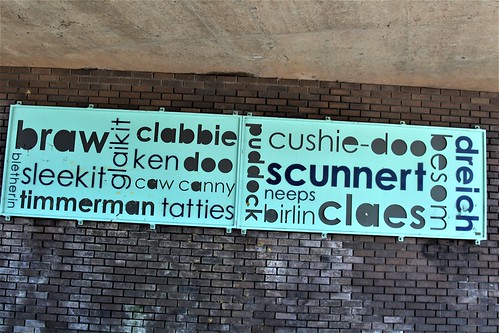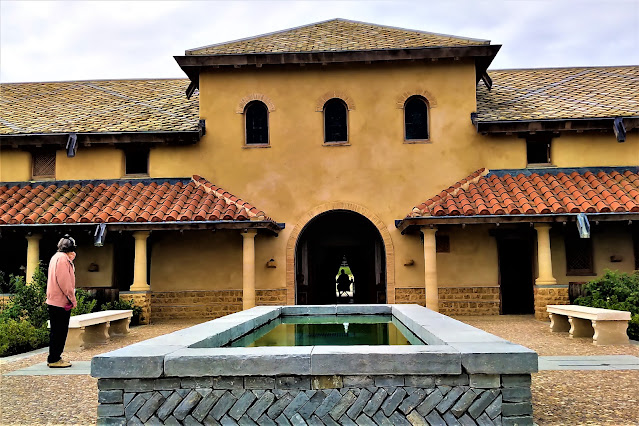Scottish slang and jargon-plus an insight into Scotland's linguistic history
Readers of this blog will recall that yesterday I posted information on the town of Irvine on Scotland's S.W. coast.
In the course of exploration of Irvine I came across the above list of slang and jargon words which were embedded in a wall. This has prompted me to research the meaning of the words, many of which are unfamiliar to me.Translations into standard English are provided below.
Translations
Braw = Good looking, beautiful; really nice.
Bletherin = Talking foolishly or too much.
Sleekit = Sly or untrustworthy
Timmerman = A person who works with timber, a woodman or
wood-cutter; a carpenter or joiner, esp. on a ship.
Tatties = Potatoes
Glaikit = Stupid looking
Clabbie = Female reproductive parts.
Ken = To know, be aware of, apprehend, learn (a fact).
Doo = Pigeon
Caw = Turn
Canny = Smart or to be wary, or careful
Puddock = A frog.
Cushie-doo = Wood pigeon
Neeps = Turnips
Birlin = A small cake made of oatmeal or
barley-meal.
Scunnert = Bored, fed up, exhausted
Claes = Clothes
Besom = A broom
Dreich = Damp, overcast, wet.
It is important to remember that Scottish English is the set of dialects of the English language spoken in Scotland. Scottish English has similar roots to the language spoken in England but is not standard English spoken with a different accent.
Scotland has an interesting linguistic dynamic, viz|:
- Gaelic is an official language but is now spoken by only about 1pct of the population with most speakers being found in the Western Isles, e.g. Lewis, Harris, Barra, etc. This language is related to Irish Gaelic. As will be attested by Gaelic influenced place and landscape names across the country, historically Gaelic was far more widely spoken than today. Gaelic is unrelated to English.
- Old Norse was spoken in the West until defeat and retreat of the Vikings in the 13th century although place names from this era live on.
- Shetland and Orkney were part of Norway until 1472 as a consequence of which the local dialect and place names display extensive Scandinavian influences..
- Due to high levels of immigration from eastern Europe in recent years Polish is now widely spoken.in Scotland.


Comments
Post a Comment